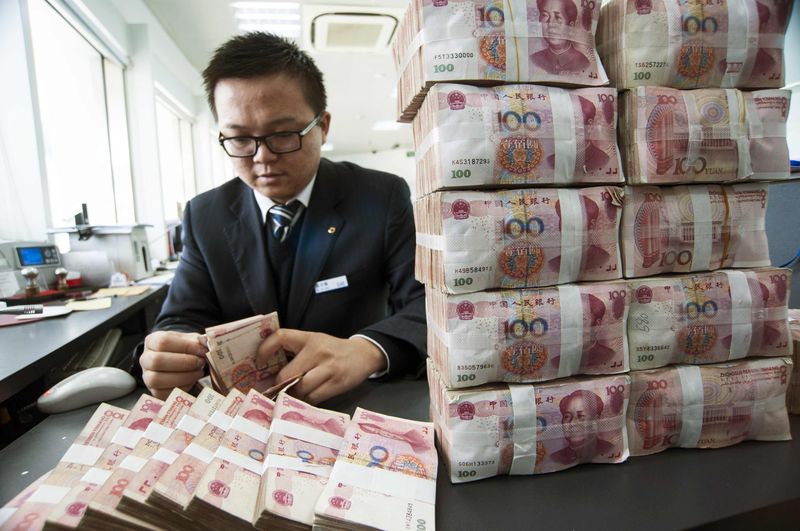Investing.com - Here are the top five things you need to know in financial markets on Tuesday, January 5:
1. China injects $20 billion to calm nervous investors
China moved to shore up shaky sentiment on Tuesday, following a stock rout that rattled global financial markets in the prior session.
The People's Bank of China flooded its banking system with 130 billion yuan, or $19.95 billion, marking the largest cash injection since September. The move came one day after a 7% plunge in Chinese stock markets.
2. Global stock markets fall even as China moves to calm nerves
Global stock markets were mostly lower on Tuesday, following a sharp selloff in the previous session, even as China took moves to boost sentiment.
The Shanghai Composite closed down 0.3%, while the smaller Shenzhen Composite ended 1.9% lower. Elsewhere in Asia, markets in Japan, Australia and Hong Kong all closed in the red.
Meanwhile, European stocks opened higher before erasing gains, with Germany's DAX down 0.7% as of 10:50 GMT, or 5:50AM ET. On Monday, it was among the worst performing benchmarks, dropping 4.3%.
In the U.S., Wall Street pointed to heavy losses at the open for the second straight day, with the Dow down 110 points. On Monday, U.S. stocks posted steep losses, with the S&P 500 marking the worst start to a new year in more than a decade.
3. China's yuan hits fresh 5-year low
China's yuan weakened against the dollar after the People's Bank of China set its official midpoint rate at its lowest level since April 2011 on Tuesday, amid persistent worries over an economic slowdown and capital outflows.
The tightly managed onshore yuan traded at 6.5225 (USD/CNY), while its freer offshore counterpart stood at 6.6417 (USD/CNH), widening the gap between the two to 1.8%.
4. Oil slips as oversupply concerns outweigh Middle East tensions
Oil prices edged lower in volatile trade on Tuesday, as ongoing concerns over a global supply glut outweighed heightened geopolitical tension between Saudi Arabia and Iran.
Brent was last down 21 cents, or 0.58%, to $37.01 a barrel, while U.S. crude dipped 5 cents, or 0.15%, at $36.70.
5. Euro zone inflation stays low, missing expectations
Consumer price inflation in the euro zone rose 0.2% last month, missing expectations for a gain of 0.3% and following a 0.2% increase in November, official preliminary data showed on Tuesday.
The softer than expected data added to pressure on the European Central Bank to step up measures to boost price growth in the euro area.
The euro extended losses against the dollar and the yen after the report, with EUR/USD down 0.59% to 1.0766 and EUR/JPY falling 0.85% to 128.28.
